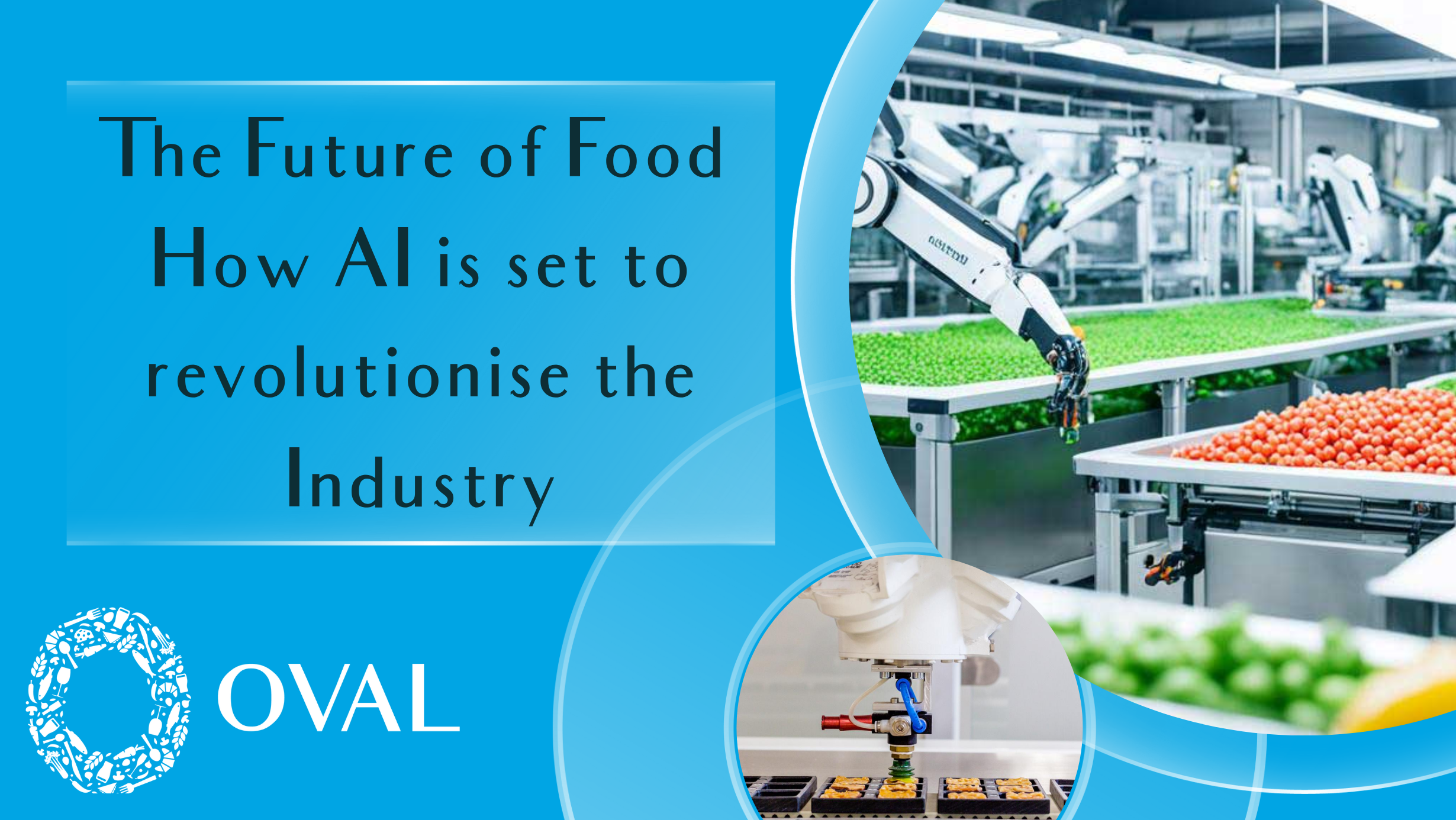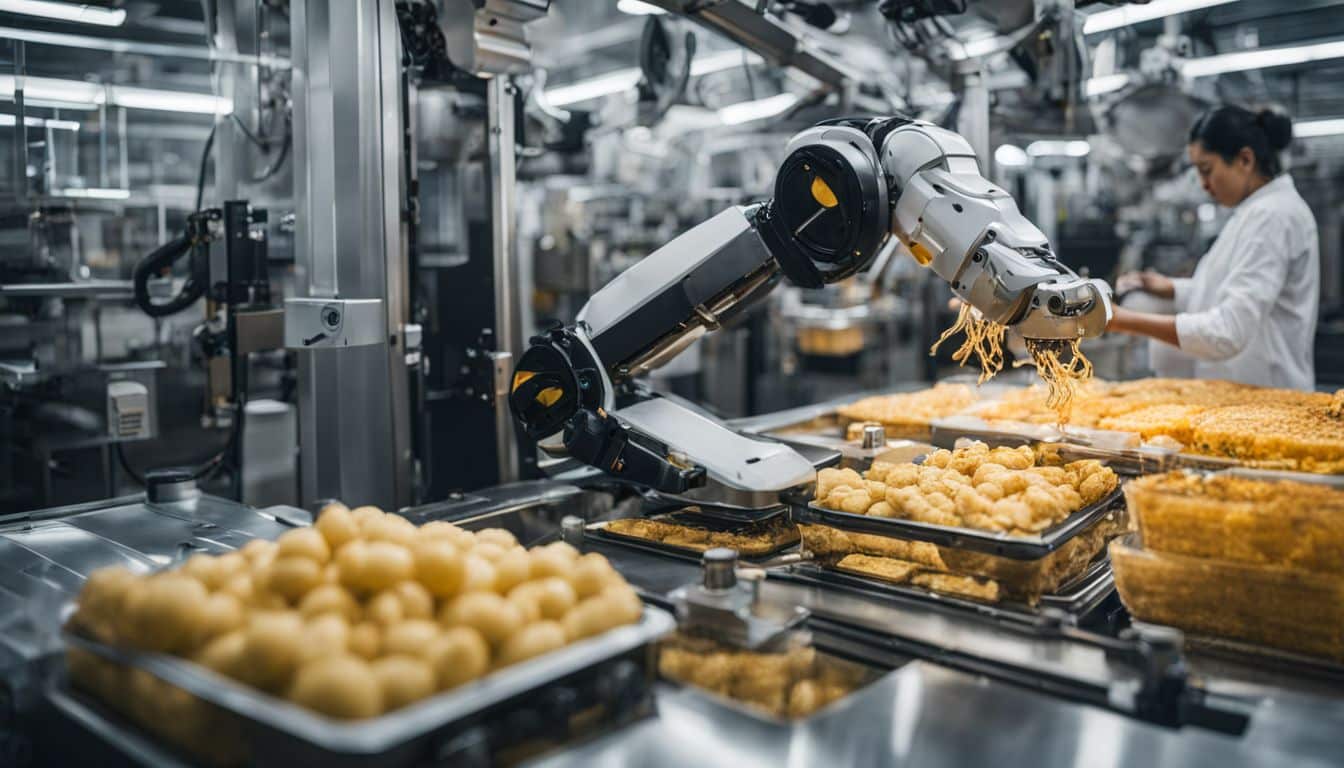
Artificial intelligence is set to fundamentally transform the UK food and drink industry across every stage of the supply chain, from farm to fork. As the sector faces challenges including productivity pressures, labour shortages, environmental concerns, and shifting consumer demands, AI offers solutions that promise greater efficiency, sustainability, and profitability.

Key Ways AI Will Revolutionise the UK Food & Drink Industry
1. Optimising Manufacturing & Production
Intelligent automation: AI-powered systems can automate scheduling, monitor equipment performance, predict maintenance needs, and reduce downtime in factories.
This leads to significant productivity gains without requiring expensive new machinery, simply by utilising data from existing systems.
Quality control: Advanced computer vision and machine learning can inspect products with more speed and accuracy than the human eye, identifying defects and ensuring only high-quality products are distributed.
For example, companies like Mondelez (makers of Cadbury) use AI-powered visual inspection to detect imperfections in real time.
2. Food Waste & Sustainability
Waste reduction: AI enables highly accurate inventory management and supply-demand forecasting, reducing both ingredient and product waste at every stage.
UK restaurants using AI systems have seen food waste reductions of 25–40%, saving millions in costs while helping the environment.
Supply chain efficiency: Platforms like Zest use AI to identify surplus and redistribute food, aiming to redirect millions of uneaten meals from waste to people in need.
Environmental monitoring: AI assists in tracking emissions and resource use throughout the supply chain, supporting compliance with UK’s increasingly strict sustainability regulations.
3. Agriculture and Food Production
Precision agriculture: AI-driven systems help farmers increase crop yields and livestock health through smart monitoring, disease detection, and optimised resource allocation (e.g., water, fertiliser, feed).
Projects like FlockFinder use generative AI to detect illness in livestock early, improving welfare and productivity.
Autonomous agriculture: Drones, robots, and autonomous tractors fuelled by AI are reducing the need for human labour and lowering operating costs, making UK agriculture more resilient to workforce shortages.
4. Ingredients, Product Development & Market Insights
Faster innovation: AI shortens R&D cycles by analysing vast datasets, including social media trends, market purchase patterns, and customer feedback, to recommend new flavours, products, and nutritional profiles.
Reduces product failure rates and accelerates market launches.
Personalised products: AI can help develop hyper-personalised foods based on genetics, dietary preferences, or health data, resonating with health-conscious UK consumers.
5. Customer Experience and Restaurant Operations
Personalised menus & dynamic pricing: Restaurants use AI to offer tailored dish suggestions, automate ordering, and adjust prices according to demand, weather, or local events.
Smart kitchen management: AI tools optimise staffing, predict busy periods, and improve food safety compliance.
Challenges & Considerations
Adoption barriers: Key concerns include ROI uncertainty, integration with legacy systems, skills gaps, and data privacy risks. The sector is still somewhat cautious, but those adopting AI are gaining competitive advantage.
Workforce impact: While AI increases efficiency, it also shifts job requirements, necessitating workforce reskilling or upskilling.
Conclusion
AI is not just a trend but a necessity for the UK food and drink industry to thrive in an era of rapid change, resource pressure, and demanding consumers. Early adopters are seeing measurable results through cost savings, reduced waste, improved quality, innovative products, and enhanced customer experiences. As integration accelerates, AI will become a core pillar of the sector’s future success